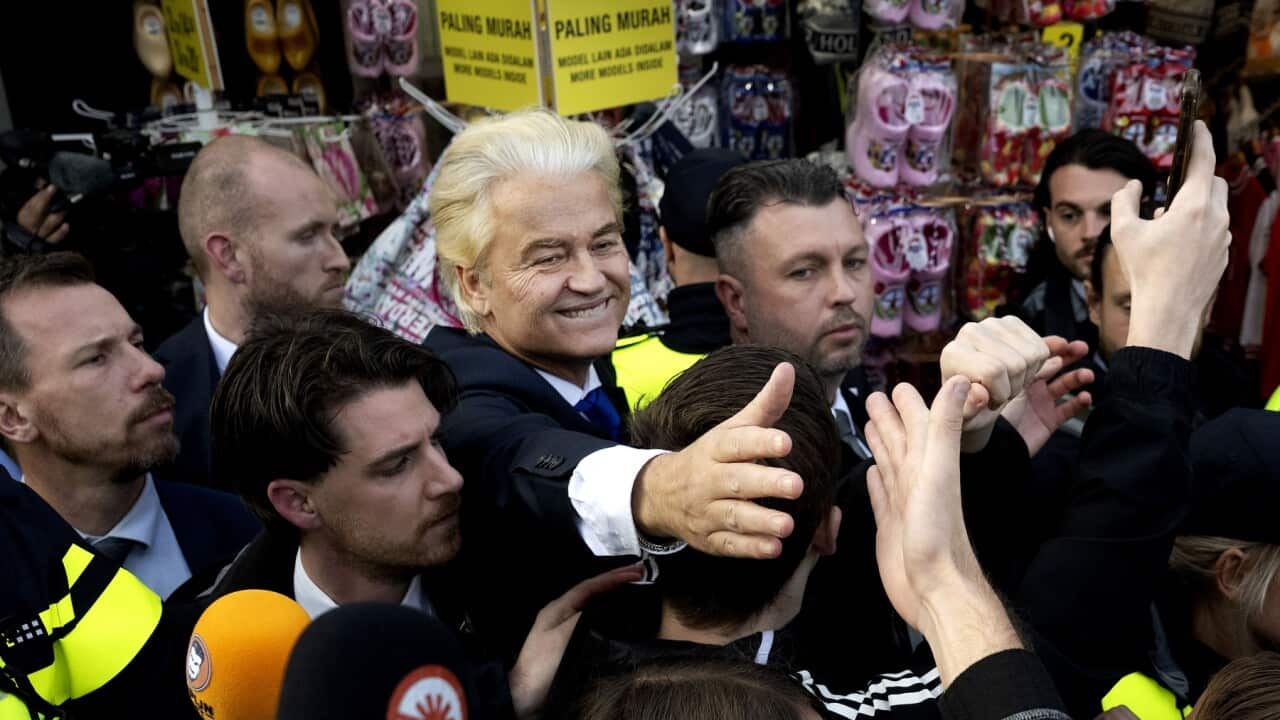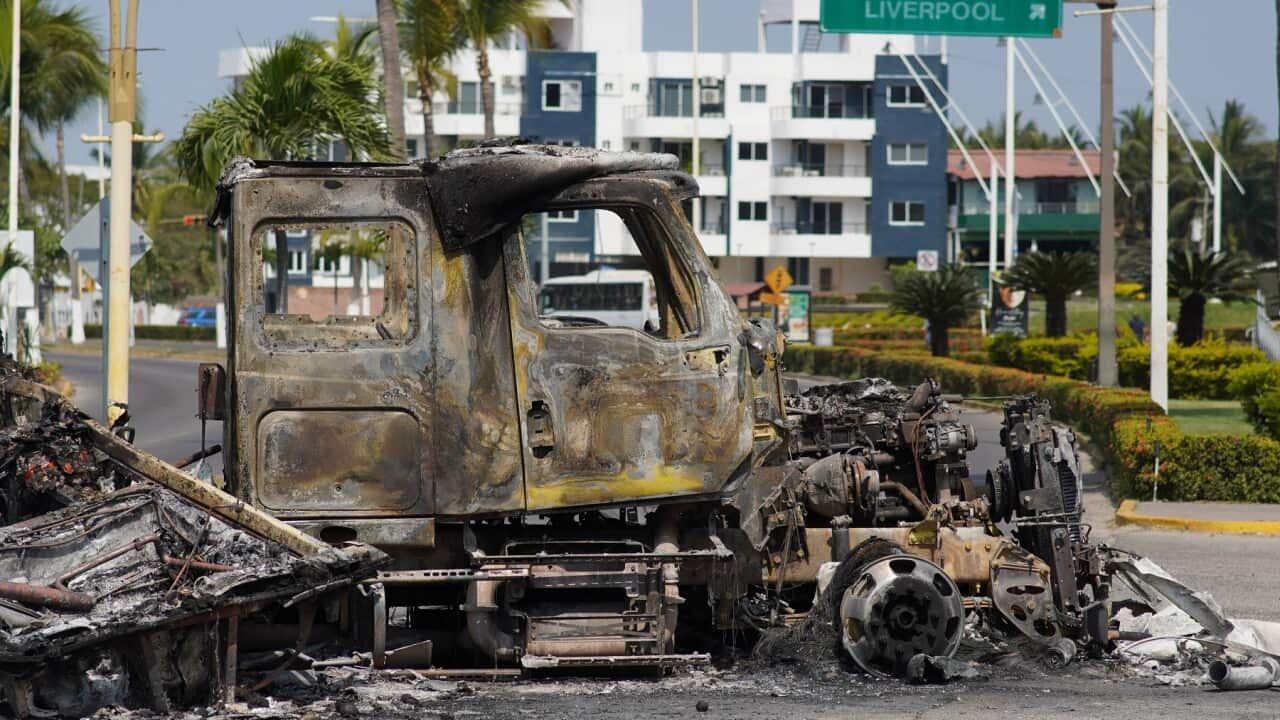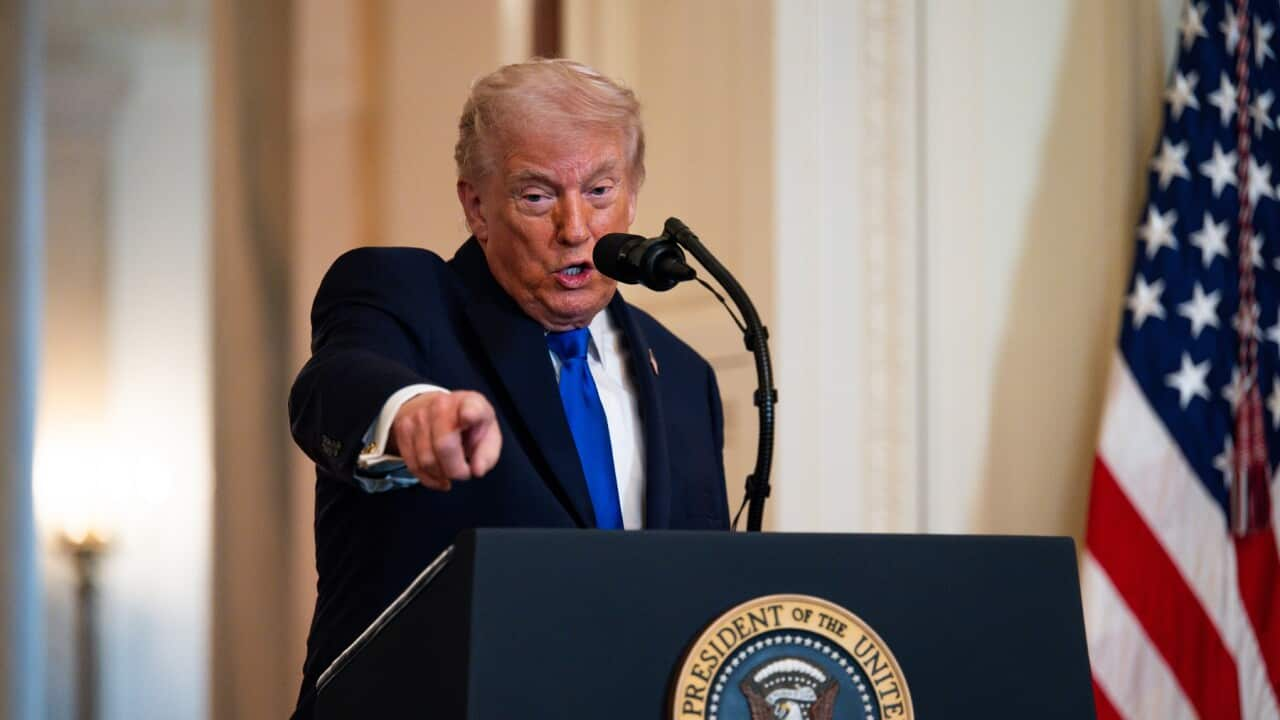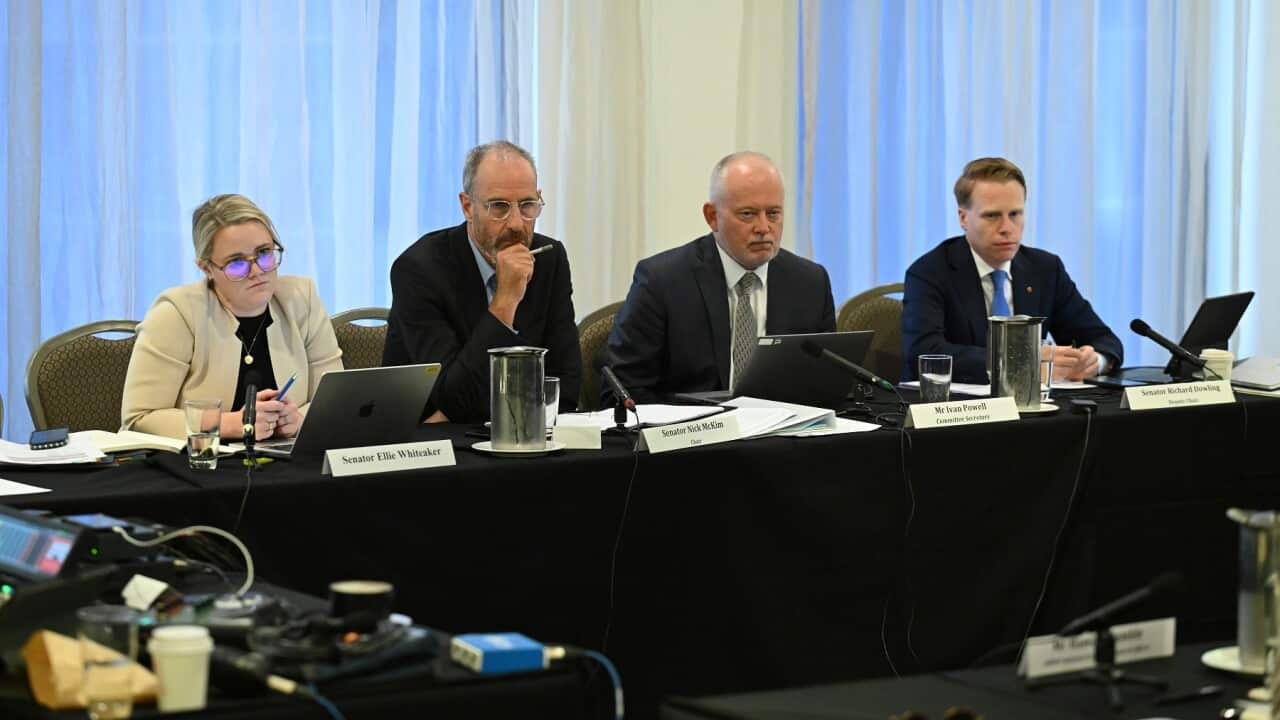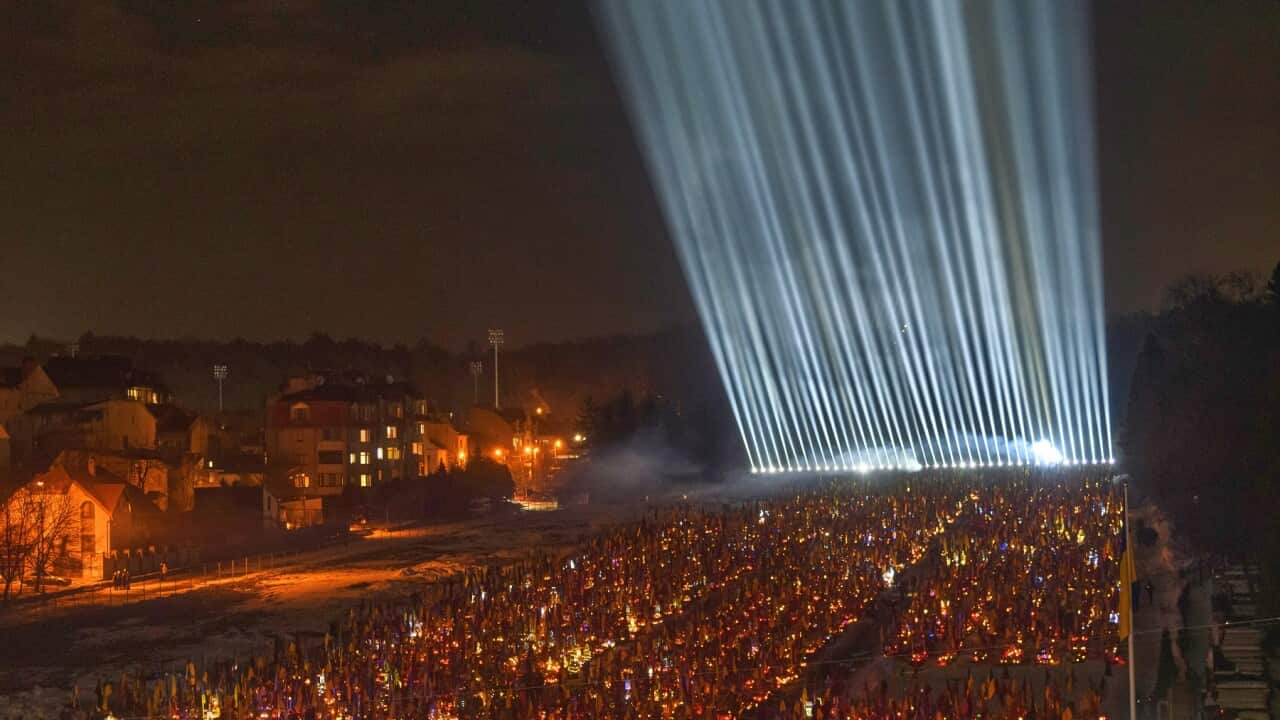Listen to Australian and world news and follow trending topics with SBS News Podcasts.
TRANSCRIPT:
The anti-immigration, anti-Islam populist provocateur of Dutch Politics is walking along the seaside, surrounded by security, supporters, protestors and press.
A chaotic scene but it’s a normal day on the campaign trail for Geert Wilders, leader of the far-right Party for Freedom, who triggered this election when he withdrew from the shaky coalition government in June.
It was a risky move that could backfire.
Other parties are refusing to work with him again but he insists, unlikely as it may be, he could still become Prime Minister - or at least, play a key role in Government.
"How will you get into government if nobody's going to work with you?"
W: "Well, let's first see what the outcome of the election is, Wednesday, the voter is in charge, not the other parties, and it really depends on the outcome, how big we would be become, what would be the alternatives, is it feasible or is it not feasible? So they are in charge now, I'm not predicting anything. I hope we will win, it looks good, but you never know. So we never cheer before the end of Wednesday any election day."
While his party may win the most seats, a functioning coalition needs to be built, meaning a more centrist government appears likely.
The new prime minister could be conservative Henri Bontenbal, who has pledged to restore decency to Dutch politics.
”What we have seen is two years of (the) politics of division and chaos. What we want do want to present is a politics of hope and responsibility."
Frans Timmermans is another contender.
The former European commissioner leads the recently merged Social Democrats and Greens.
“What we need to do is ... get this country working again and put this country on a social track, on a track of fairer distribution, on a track where we reinstate the state that we needed on education, on health care, on housing, on social benefits.”
The progressive D66 could also play a role in the next government.
Its leader Rob Jetten’s slogan is ‘yes we can’ with a campaign focused on building 10 new cities.
Yet it’s Geert Wilders who has largely set the election agenda.
Linking the cost-of-living crisis to migration, he’s proposed a total ban on asylum seekers.
Jaap Schilder is planning to vote for him.
“With the asylum crisis, so to speak, these people all need to eat, they need to live. But we need to be able to take care of ourselves, and that's why I'm voting for the PVV. Our own people first."
In recent months, violent protests have occurred outside new migrant processing centre, while in August, Wilders posted an illustration on social media showing a woman’s face - half blonde, half brown and wearing a headscarf, with the caption: ‘the choice is yours’.
It prompted a record number of complaints to the Dutch anti-discrimination hotline.
Palwasha Hamzad is running for the Greens.
Her family fled Afghanistan when she was a child and settled in Haarlem, near Amsterdam.
She’s concerned about where her adopted homeland is headed.
“I see increasing racism and discrimination and there can be various reasons for this. Poverty could be a reason. The housing crisis could also be a reason that these problems are used by certain political parties wanting division to arise in our society and set people against each other."
And it appears it has worked.
Despite asylum seekers representing a small portion of total migrants, and migration being down year on year, a record number of people are expected to back far-right parties, including voter Gina Swarthoed.
"(I am worried) about the integration of many foreigners. I can see my grandchildren wearing a burka in a few years. I really think so."
Who won and lost seats will be known soon after voting ends but coalition talks often take months.
